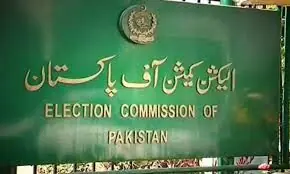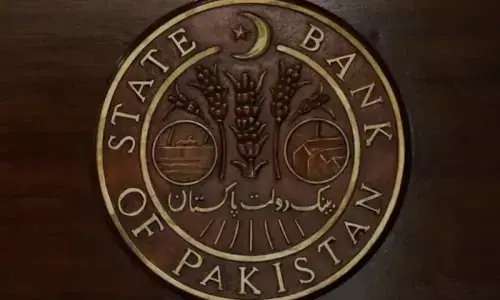Fahmida Raiz, writer, human rights activist and the author of more than 15 books on fiction and poetry, has always remained at the centre of controversies. When Badan Dareeda, her second collection of verse, appeared, she was accused of using erotic and sensual expressions in her poetry. The themes prevalent in her verse were, until then, considered taboo for women writers.
The feminist scholarship and women’s movement, however, not only acknowledged her expressions but welcomed them with applause. Riaz was also faced with challenges due to her political ideology. More than 10 cases were filed against her during General Ziaul Haq’s dictatorship. She was forced into exile during the same regime, only to return to Pakistan after Haq’s death in 1988. The poems from her collection Apna Jurm Sabit Hae are politically charged and reflect the torment her homeland experienced under dictatorship. In terms of using creative expression for political discourse, Riaz stands among literary greats such as Nazim Hikmet, Pablu Neruda, Sartre and Simone de Beauvoir.
Following are excerpts of a conversation she had with Herald on her literary journey and issues confronting Pakistan’s literati.
Amar Sindhu: Does creativity need ideology?
Fahmida Riaz: Once creativity expands beyond the very personal, almost biological paradigms, it seeks some ground to stand upon. Creativity is very often rooted in some idea. Our folk songs and stories do not seem to be ideological but they seem to have ideas, when looked at closely. The question of ideology is raised mostly in the context of progressive literature that sees individuals in a web of external circumstances and class conflicts. Literary creativity does not have to emanate from this consciousness, nor does this consciousness hamper creativity. In the 20th century, great writers such as Pablo Neruda, Paul Nizan, Nazim Hikmet, Faiz Ahmed Faiz and Gabriel García Márquez declared themselves to be Marxists. An artist like Pablo Picasso, who revolutionised the world of painting, was a member of the Communist party of France. On the other hand, two literary giants before these writers, Leo Tolstoy and Dostoyevsky, saw the individual and the society in the context of Christian teachings and sought the answers of all human problems in Christ. You may notice, though, that too was a kind of ideology.
Amar Sindhu: What made you realise that you possess creative talents?
Fahmida Riaz: Am I a creative person? Maybe I am, who knows? I am always trying to make sense of what may be total nonsense. All kinds of ideas come to my mind, ideas I am even ashamed to mention because no one is thinking along those lines. To cite just one example, I have been wondering why we Pakistanis keep thinking of the Afghans either as our stooges or as Indian stooges. Maybe the Afghans have their own national identity like us and the Indians. So if we approach them as such, we may learn what they want. Similarly, the Bangladeshis fought a war with West Pakistan in which India helped them but we keep thinking that it was a war between India and Pakistan only. This interpretation is pervasive in India also. However, if we begin to think of Bangladeshis as a national entity, as a people who wished to be separated from us, and not merely puppets in someone’s hand, the heartburn towards India for helping them may considerably subside.
Amar Sindhu: What is the source of your creative inspiration? Is it social upheavals, disorder, chaos or internal angst?
Fahmida Riaz: My poetry sprang from what I was engaged in. I belong to a tradition. This is how Faiz, Shaikh Ayaz, Gul Khan Naseer and Ajmal Khattak spent their lives and created marvelous poetry. I am not an exceptionally politically over-charged poet. Perhaps the only exception is that I am a woman. For me, literature is not separate from life. Literature is something alive, like any other living organism. There have been trailblazers in this country. It is a pity that many of us do not remember or understand or acknowledge what they have done for this state and its people. That our poetry has been largely political is the result of the peculiar circumstances prevailing in Pakistan. This country has been pushed from one crisis to another. Things have been so bad that a writer could not ignore them. It even made poets and writers of beautiful fantasies like Muneer Niazi and Intizar Hussain write about political matters.
Amar Sindhu: Do you believe that the political consciousness of a writer could become an emotional weakness or does it strengthen creativity?
Fahmida Riaz: There are many kinds of writers. There are those who choose not to respond to their socio-political surroundings. And, there are some writers who cannot dissociate their work from their surroundings and remain very much a part of the social mayhem. However, there are times when they are completely possessed by an inner turbulence or joy. My second book, Badan Dareeda, does not focus much on political and social developments. It depicted my inner being. My life had undergone a sea change – from being an optimistic, lovesick college girl, I had become a married woman. It dawned upon me that sexuality is forcibly subjugated to social needs. How natural desire and the longing of a woman for a man, arising out of a number of reasons, is completely disregarded by social customs. These were great upheavals within my heart and mind as a female poet. Then motherhood, a fantastic physical, psychological and emotional experience, found an outlet in words. So I had to change my life – only after that could I bring some change to my homeland. While I myself changed my life on my own, I joined hands with others who were trying to make a difference, to change my homeland. Critics have misinterpreted this change in my subject matter. Mostly, they have been unable to understand it at all. They have failed to closely examine the relationship between the life and works of a writer.
Amar Sindhu: What, do you believe, has annoyed your critics?
Fahmida Riaz: Amar, you are a woman and a poet, and you know the heavy price a woman writer has to pay for simply being a woman. A male dominated society such as ours, in particular, refuses to take your thoughts and creativity seriously. For most men, the most important aspect of your persona is the fact that you’re a woman; someone they can go to bed with. [They seem to think that] your mind is an unnecessary appendage that is best left ignored. Whatever you are saying must have a single purpose and that is to excite and arouse them. If you have political ideas, you must be parroting the ideas of some unknown male lover of yours who must be controlling your mind and your words. It is the general consensus that a woman’s mind is incapable of original thinking. One has no choice but to carry on, nonetheless. That is what I have tried.
Amar Sindhu: Why does a writer still need to write at a time when creative debate among writers is dead and the dialogue between the writer and society has been crushed by repressive forces and fundamentalism?
Fahmida Riaz: The death of literature has been announced many times. The electronic media, despite claims of freedom, is actually rigorously monitored by our establishment. At no point in history has the written word been required more than in present times. Pakistanis have cried wolf over the danger the country is in for long but we have now come face to face with the wolf, ominously snarling at our throats -- the country could be swallowed up by mad fundamentalists or even dismembered. Today writing seems to be the only venue left for creative people. Luckily, the Taliban and the ISI [Inter-Services Intelligence] do not read poems and fiction. (If they did, they will no longer be doing what they are doing). That is all the more reason why we must continue to write. As Faiz said:
Speak, your lips are still free...
Speak up,
Say whatever you wish to say
Amar Sindhu: You have translated Fariduddin Attar, Jalaluddin Rumi, Shah Abdul Latif Bhittai , Shaikh Ayaz, Furough Farrokhzad, Naguib Mahfouz and others. Which writer is closest to your own creative thoughts?
Fahmida Riaz: The quality that makes a work of literature classic is its timelessness. The classics in literature do not age. You always feel close to them as if they were written for today, giving a voice to your own emotions and commenting on your own surroundings. That is how my mind was captured by Rumi. It was the love poetry in his divan (collection), the joy, the ecstasy of union with the beloved and the heart-wrenching grief of separation [that captivated me]. Did all that he wrote about make sense only hundreds of years ago? No, the human heart still feels the same way. The classics I translated are mostly Sufi poetry. It was Rumi who drew me into the Sufi classics. Sufi works are concerned with the mysteries of the universe and the place of the individual in that mystery. These questions still deeply attract a thinking mind.
The other poets you have mentioned wrote what will be known as classics a hundred years from now. These include poets whose works I have translated, such as Farrokhzad and Shaikh Ayaz. I was amazed to see a couple of poems by Farrokhzad which have similar content as my own verse, even the words and the similes are similar. How did that happen? Perhaps, this is because we are two women living within Muslim societies, following the same Persian literary tradition in the same timeframe. I have great admiration for Shaikh Ayaz. He has a fearless approach towards form and vocabulary. He brought to life dead forms and used words with great ingenuity. If any poet has really influenced some of my poetry, as far as form and meter are concerned, it is Shaikh Ayaz. But I do not set apart modern literature and the classics. One responds spontaneously and equally to both [genres] and an intimate relationship develops between you and these literary masterpieces. Translation, thus, becomes [a medium through which one can] relive the aesthetic and intellectual experiences of these great artists and thinkers.
Amar Sindhu: Has contemporary writing lost the universal appeal which classical texts retain?
Fahmida Riaz: I don’t think so. There are many contemporary writers with universal appeal but we need to wait a while before their novels evolve into classics because contemporary age can never declare any work to be classic. I would like to mention some novels here, such as Maila Anchal by Shiri Ram Shukla, the author of Rag Darbari, and Kiran Desai's Inheritance of Loss. The latter is about the interaction between India and the United States. I feel this is a theme close to myself -- what the colonisers left behind, the Subcontinent‘s inner struggles, its contradictions, its physical reality and diversity. It is a lovely novel. What a wonderful writer! Similarly, Orhan Pamuk's Snow is captivating. It tells you a lot about the Muslim confrontation with the West. Then there is The God of Small Things by Arundhati Roy, an absorbing novel. Pakistani literature does not have novels like that yet -- or maybe I have not read them.
Amar Sindhu: Where does Pakistani literature stand now?
Fahmida Riaz: In novels, we are far [behind the rest of the world]. In native languages, we may have some names -- for example, we have this fantastic short Sindhi novel Odah (A Blazing Fire) by Haleem Brohi. It is a minor classic about male sexuality and about the sexual act turning into a terrible mental torture. It has unforgettable sentences such as, “I am walking, endlessly, in this thick white marsh, under a mercilessly blazing sun.” In poetry, we have great names such as Faiz, Shaikh Ayaz, Ahmad Nadeem Qasmi, Majeed Amjad, Munir Niazi, Atta Shad, Gul Khan Naseer. Among the current crop of poets, we have names like Amar Sindhu and Harris Khalique. In short stories, we have names such as Naseem Kharal (Sindhi), Khalida Hussain and Hajira Masroor. Ali Akbar Natiq is also writing good short stories.
Amar Sindhu: The Pakistani English novel is meant only to attract western readers. Would you agree?
Fahmida Riaz: It embarrasses me to see a number of writers raising all kind of objections about English literature -- that is, mostly novels, written by Pakistani authors. I keep wondering if these objections are arising out of sheer jealousy. It is the wrong attitude. They are a young lot and are writing in English because this is the only language they have learnt enough to express themselves effectively. Now the fact is that they do belong to a certain class and their works reflect the ethos and experiences of the well-to-do classes in Pakistan. Yet, exceptions have begun to appear. I read The Reluctant Fundamentalist by Mohsin Hamid and saw the movie too. I think our young Pakistani author has ventured to write about an important subject, and that is just one example. Sulman Rushdie, if he is a Pakistani, or perhaps an Indian-Pakistani, wrote about our history and the politics in Pakistan. Others will come up. Or the same authors may grow more mature with time.
For instance, Mohammed Hanif’s A Case Of Exploding Mangoes tells you the story of the army takeover of Pakistan and is such a vibrant piece of literature. If our English literature attracts Western attention, what is wrong with that? Surely, there should be more translations from the literature written in Pakistani languages. It may happen in the future. I was absolutely delighted to see Ali Akbar Natiq’s short story translated and published in Granta, the prestigious British literary journal.
Amar Sindhu: Do you agree that a contemporary writer intellectually feels more isolated than his predecessors?
Fahmida Riaz: A writer can feel very lonely and isolated when he or she is not part of a group, or is not keeping pace with the masses. There were many moments when I felt isolated in exile, when I heard and read about other writers enjoying prominence in Pakistan. But I was more than compensated when I was greeted with a warm welcome upon my return [from exile].
Similarly, I felt isolated when Badan Dareeda was published -- when it was maligned and so crassly misunderstood. When the women's movement in Pakistan owned its message, that isolation ended. Then a few years ago, Shah Mohammad Marri , the wonderful Baloch writer and scholar, wrote an article about my poems in Badan Dareeda, and he was able to encapsulate the spirit of those poems. He is the only male writer who understood what I was trying to say and expressed it in Urdu which made me feel utterly grateful. At least, I will not be dying completely misunderstood. Pakistan's intellectual life may have been one long, arid desert for the most part but where some of my important works were concerned, there were those like Shah Mohammad Marri or Khalida Hussain who tried to explain to readers what was behind my poems, which a majority of Urdu critics understood as pornography.



































